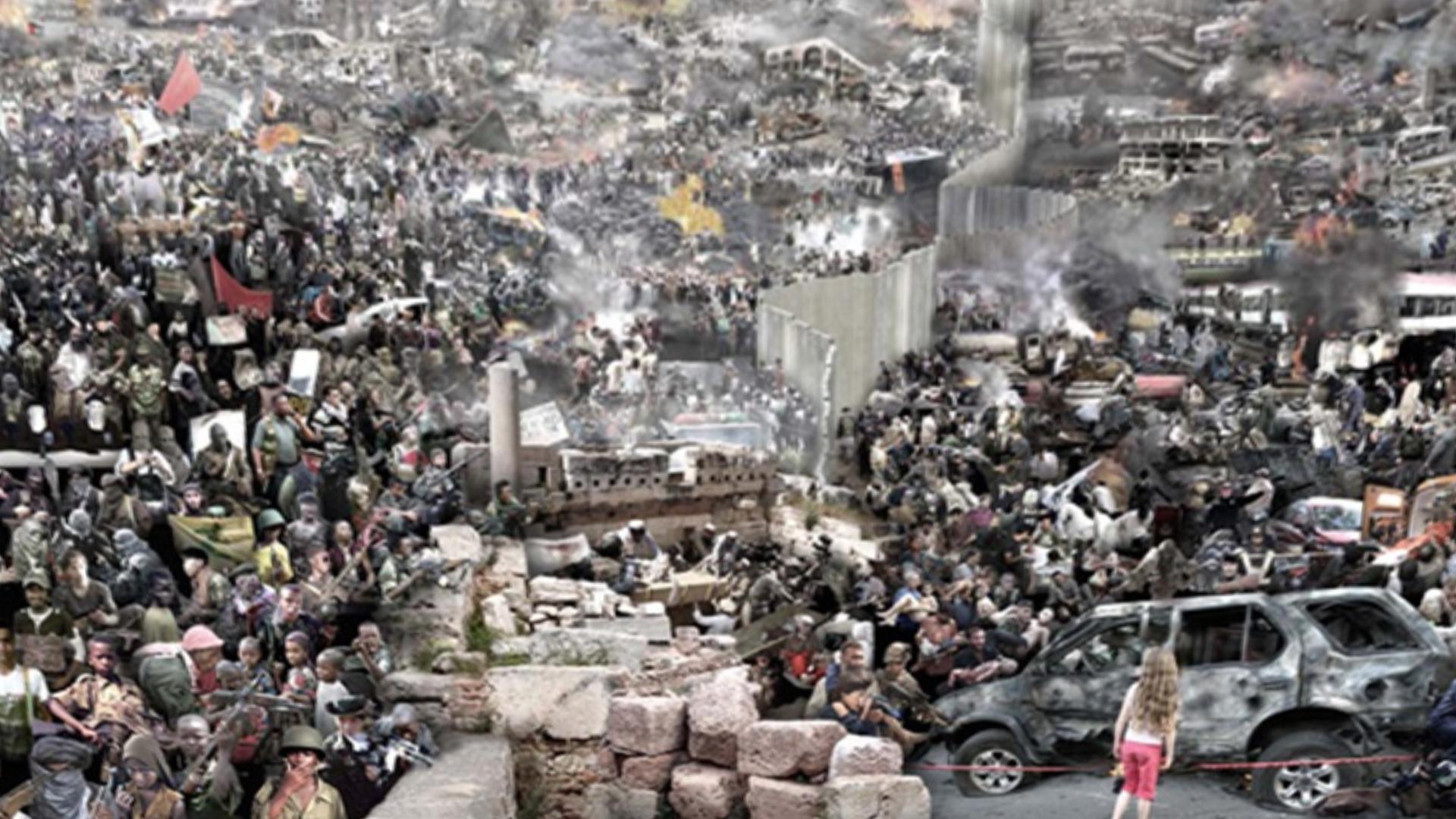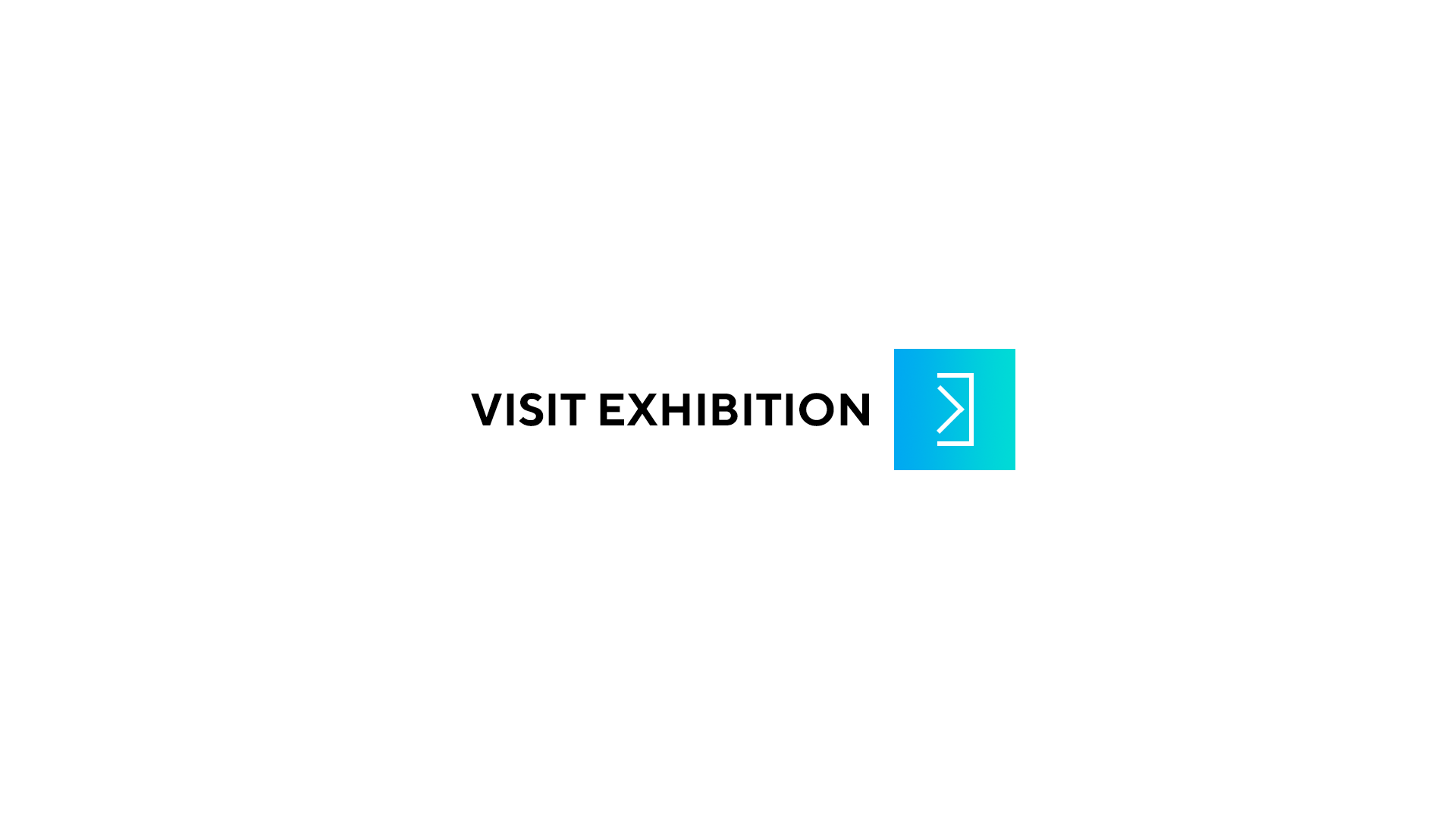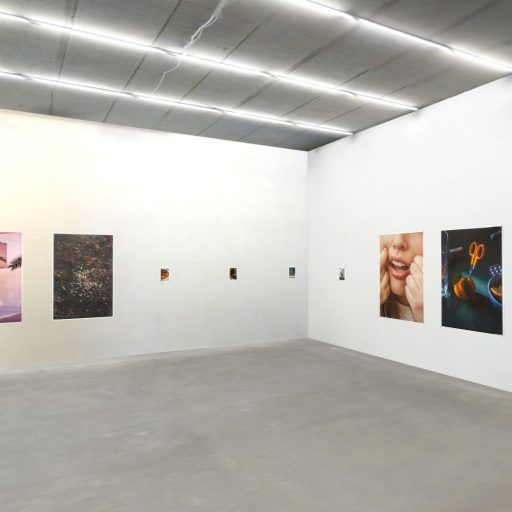

Du Zhenjun transposes paintings dealing with the myth of Babel, be they from Cornelius Anthoniscz, Gustave Doré or Peter Brue... more >> A painter, photographer and videographer, Du Zhenjun revisits the myth of the Tower of Babel, as Dante traveled through the circles of hell. Through the Internet, man’s lust for power brings humanity into the era of the Anthropocene and his influence on the Earth’s ecosystem is both devastating and irreversible.
Du Zhenjun transposes paintings dealing with the myth of Babel, be they from Cornelius Anthoniscz, Gustave Doré or Peter Brueghel. He uses thousands of images extracted from the World Wide Web, and poses the question of the future of humanity, prey to conflicts, natural disasters, violence and intolerance.
Lifang, a painter, presents, for her part, with her Crossings series, the drama of migrants fleeing the ravages of global warming. The expressionist force of her oil paintings cause amazement, as well as her powerful brushstrokes, the violent contrasts between the idyllic blue of the sea, and the crowding of bodies on these miserable Rafts of the Medusa.
Qu Leilei, a painter, offers a counterpoint to the shattered worlds of Du Zhenjun and Lifang or, perhaps, a proposal for a happier alternative. His unique technique of painting with Chinese ink constitutes a strong link with the Taoist tradition which places man in harmony with the universe he lives in. With his drawings of Hands reaching out, touching, or joining, Qu Leilei recalls the beauty and love to which humanity aspires, and advocates that tolerance and brotherhood can still save humanity.
For Qu Leilei, the fall of Babel is also, as professed by Mallarmé, the beginning of multiculturalism and literature inasmuch as words, ceasing to correspond only to objects, open up the space of poetry, and thereby that of beauty and harmony.










